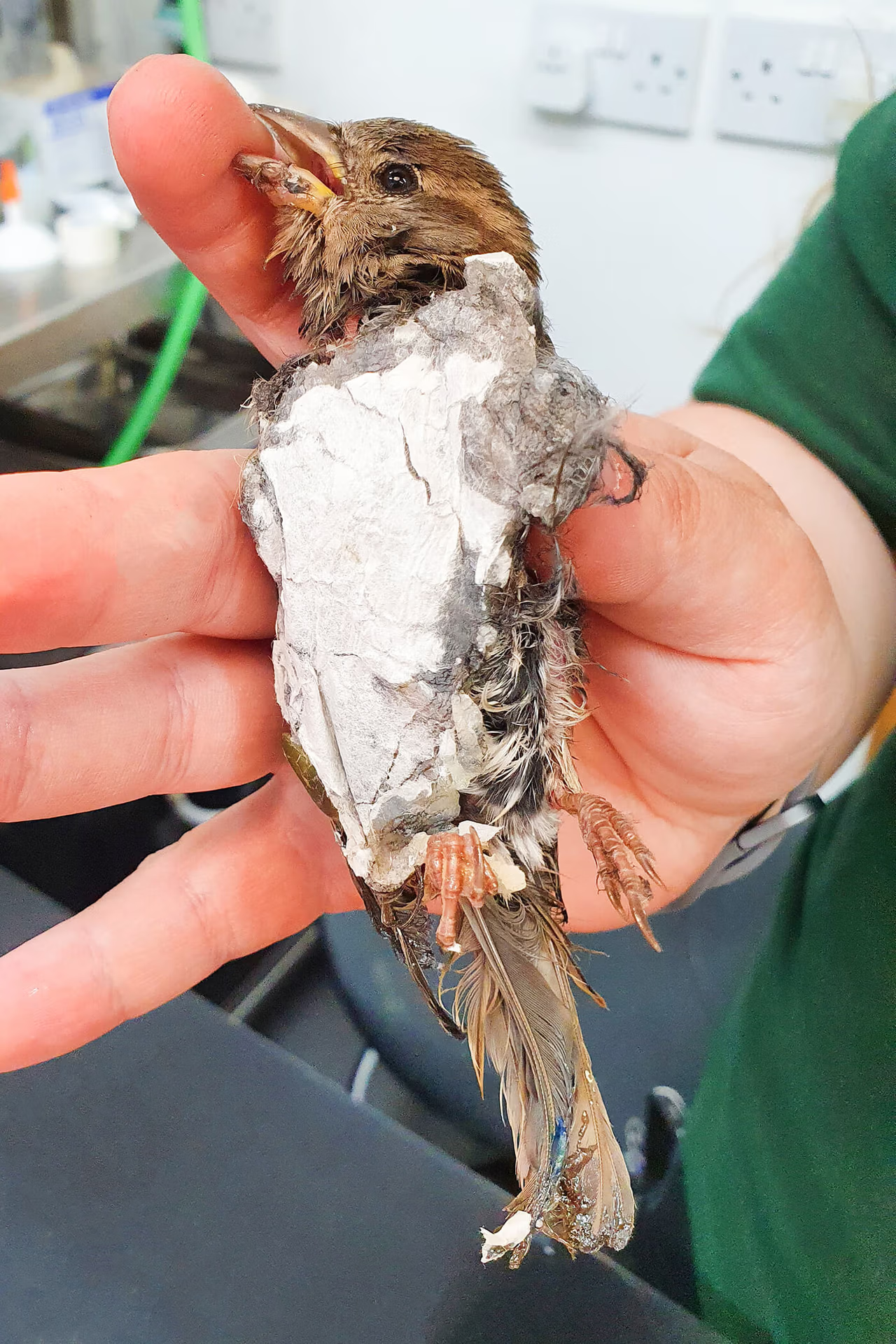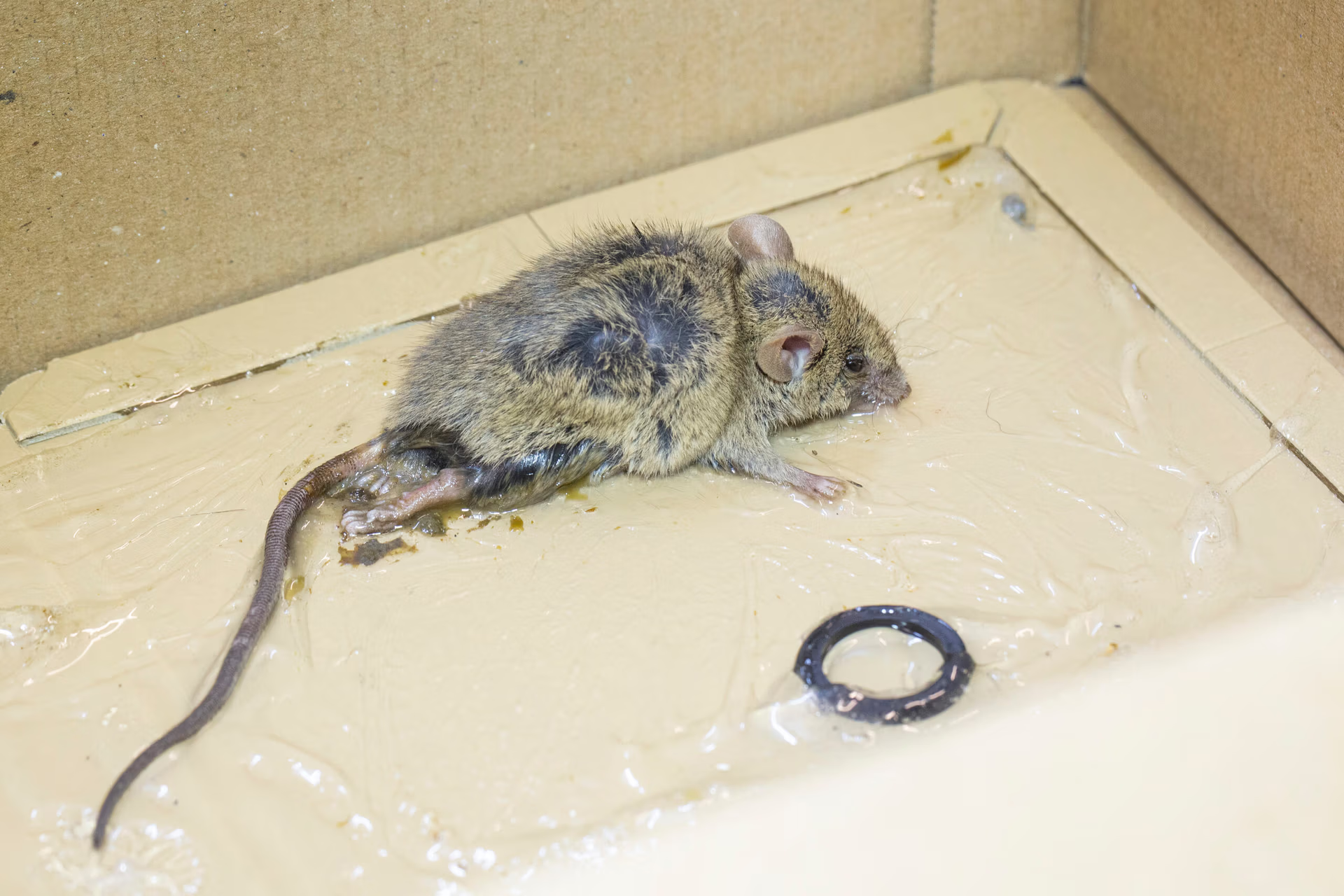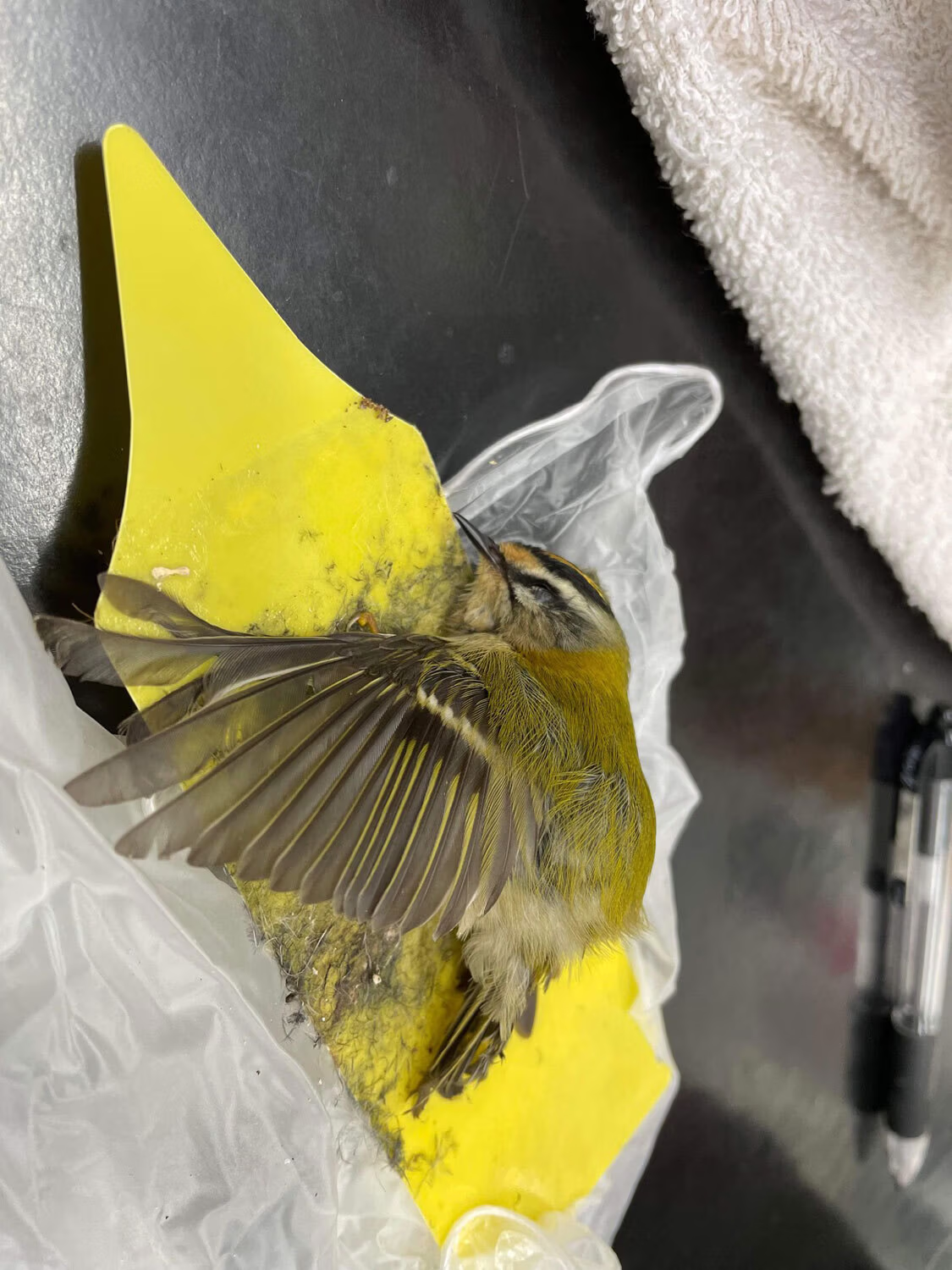The devastating impact of glue traps
Buteo buteo
What you need to know
Over the forty years Wildlife Aid has been running, we have seen and dealt with some horrific injuries. A large majority of these are as a direct result of man’s impact on nature, with the UK being one of the most nature-depleted countries in the world.
At Wildlife Aid, we are working to redress this through education and the rescue and rehabilitation of wildlife. Telling the stories of the thousands of wild patients that come through our doors, ever year, is also a vital part of our education programme. These stories include the large number of casualties we see that have fallen victim to glue traps.

Their Use
Glue traps do exactly what their name suggests: trap something using an adhesive.
Glue performs a major role in the capture of animals (from fleas to bears) and, in particular, the capture of wild birds and rodents. Sadly, whilst glue traps’ predominate use in the UK is for catching rodent species, they are notoriously indiscriminate and, amongst the innumerable mice and rats we’ve admitted as patients, we have also seen wood pigeons, feral pigeons, robins, sparrows, wrens, blackbirds, and goldcrests all stuck to the harmful traps.
Their Impact
Once an animal is caught on a glue trap, it can be up to 24 hours or more before the trap is checked. This leaves the animal not only physically incapacitated, but without the ability to reach food or water for a long period of time. The trapped animal faces an extremely slow death. In some circumstances, animals have been known to injure themselves irreparably in a bid for freedom, which often still results in the same outcome of a slow and painful death.


Introduction of Legislation
In 2022, legislation was announced for the ban of glue traps in the UK, which will come into effect in April 2024. However, whilst we welcome the ban on glue traps, this is not a blanket ban; with a licence, pest controllers will still be able to use them. This is an incredibly inhumane form of pest control, where animals can suffer for up to 48 hours, often dying of hunger and exhaustion. There are alternative, humane methods of pest control; however, here at WAF, we will always advocate for trying, wherever possible, to live alongside wildlife, to help redress the balance between man and nature.